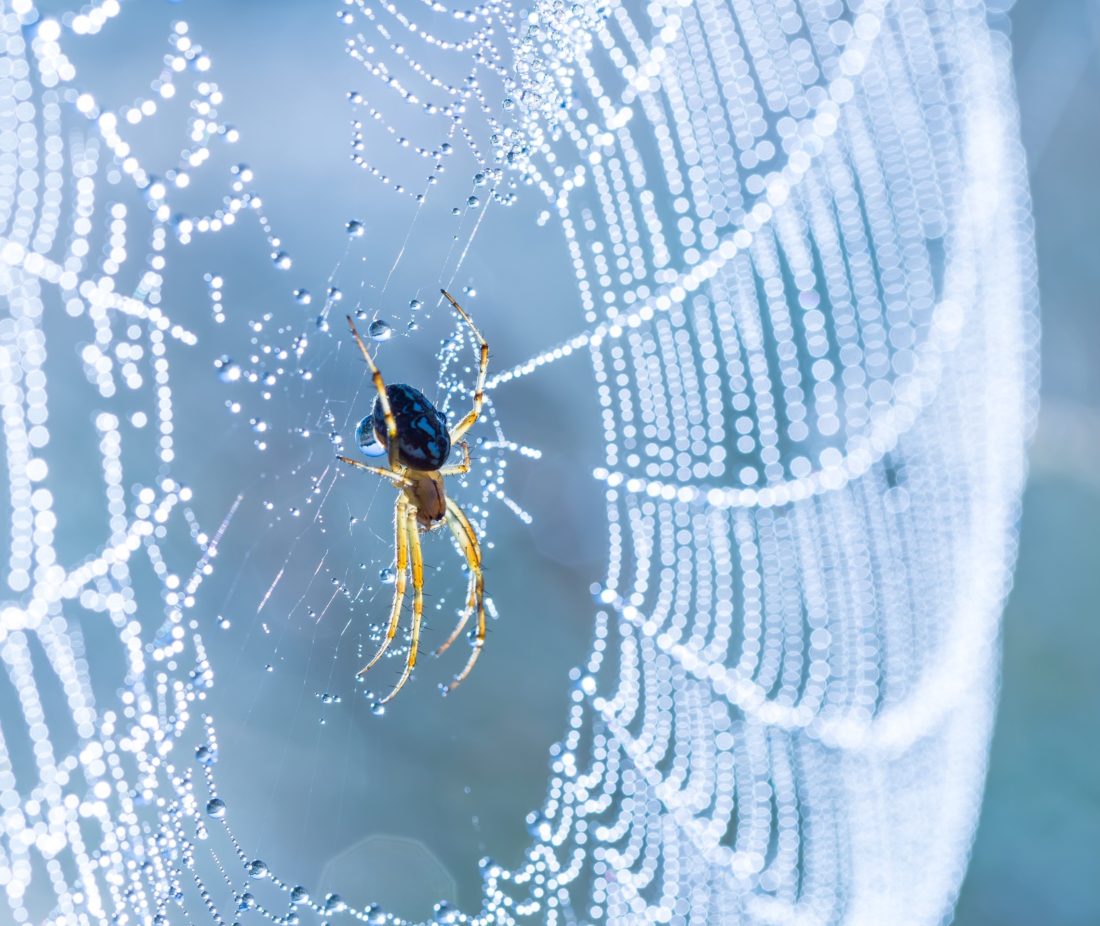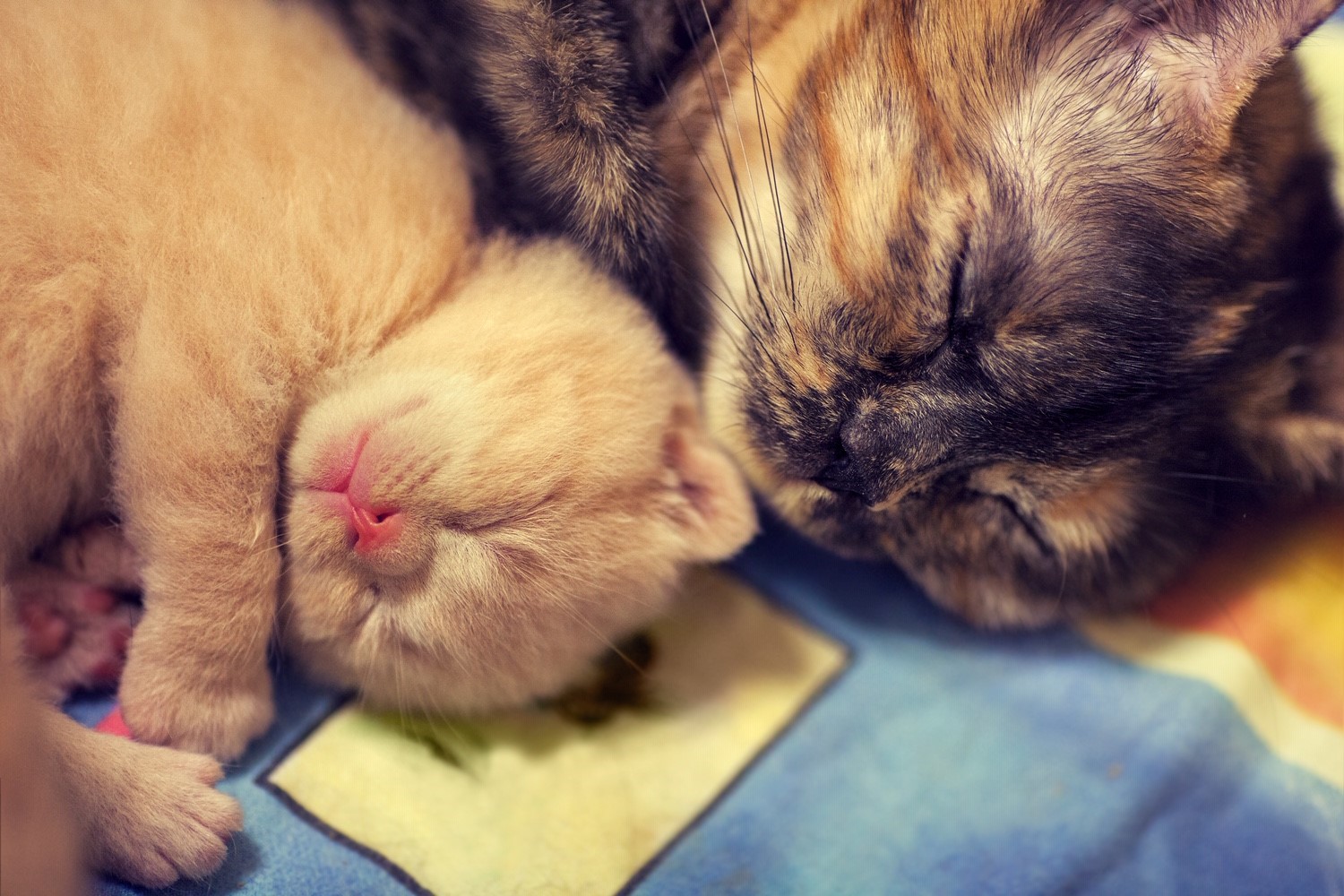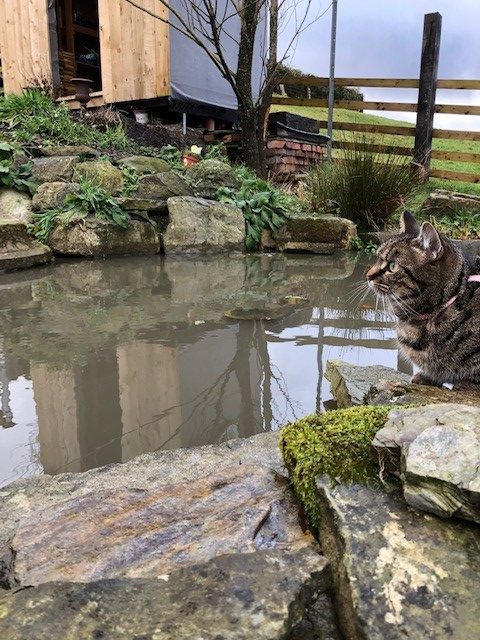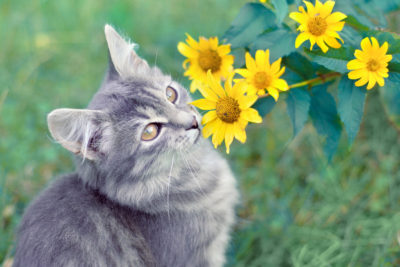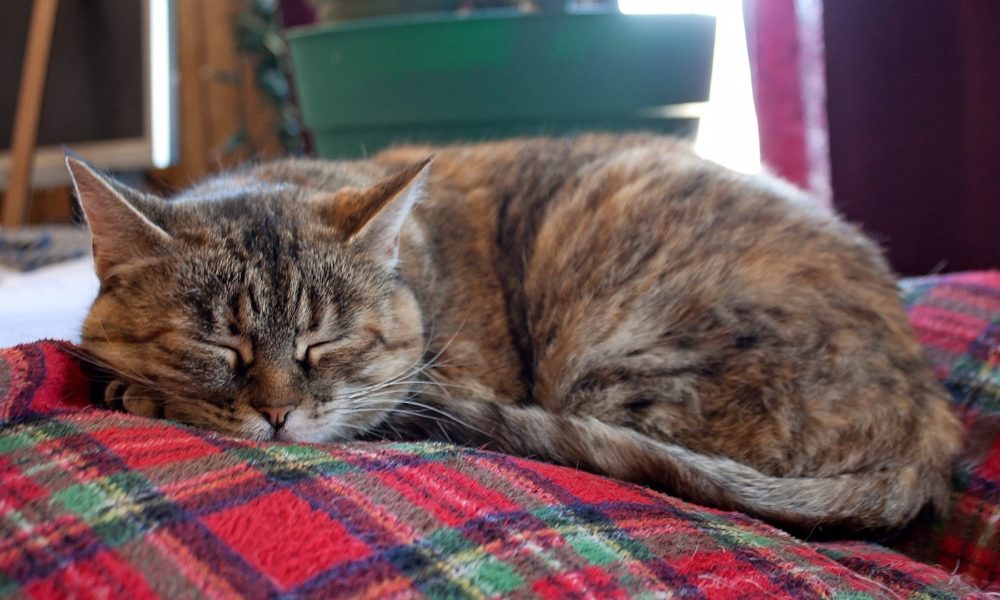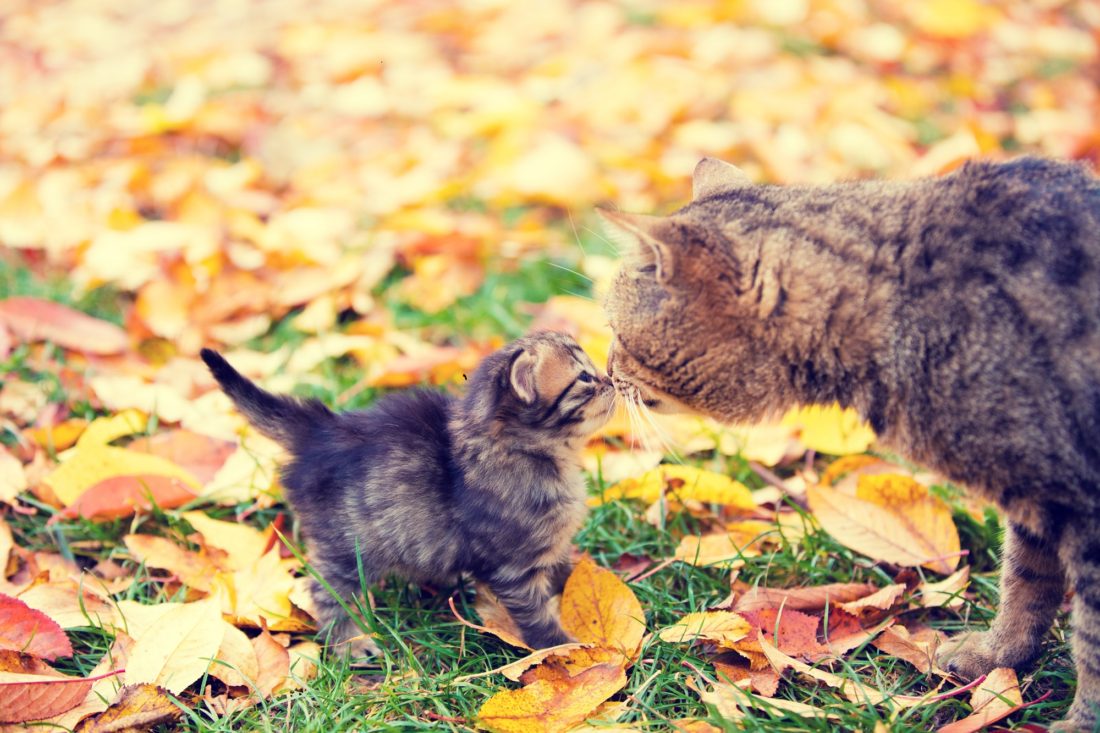
Why does my kitten attack my older cat? 9 top tips to resolve conflict
Friends of ours were extremely excited to be welcoming a new kitten to their family. They already had one, much loved, older cat and were keen to give another cat a home. Their current cat was 10 years of age which marks the beginning of their older years. They were desperate for the two cats to get along and were upset and worried when it became clear that this wasn’t the case. Their initial worries were that the older cat may not have accepted the new, young kitten. But much to their surprise it was the other way around! It was the kitten that was bothering the older cat. The kitten would swipe the older cat with its paw, constantly bothering the cat and simply unable to give up and leave the older cat be. But what could possibly be the reason behind this constant hounding and pestering?
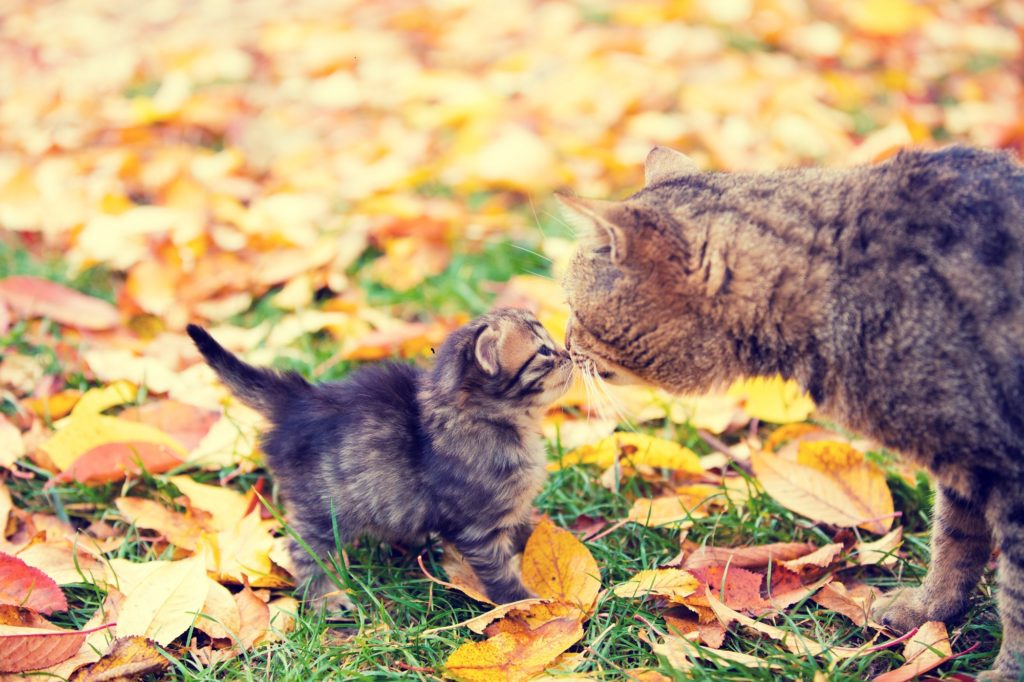
Why would a kitten attack an older cat?
It may seem very brave, or foolish, for a kitten to attack an older, and probably bigger cat. Attacks by the kitten may occur due to the following factors:
Fear
Most cases of aggression in kittens is caused by fear. To a young kitten the world around them has so many new and unknown things. Strange noises, new objects, other animals and people, different smells – these can all be overwhelming and frightening. Being aggressive may simply be their way of ensuring they keep safe. It may take a little time, experience and knowledge to decipher what is safe and what things are truly dangerous.
Curiosity
All the new experiences listed above do not always trigger a fearful response. Some kittens are very inquisitive and will investigate all these new senses. As such, testing and probing another cat member may well be the kitten just investigated the older cat.
Protecting territory
A kitten may have a natural instinct to protect its surrounding environment. Most of the time this kind of aggressive behavior should pass as they settle into home life.
Hunting and stalking instincts
Hunting is an instinct in all cats. Cats were domesticated about 10,000 years ago. Before this hunting was a means of survival. Hunting meat for food was essential to their existence. Although today’s cats don’t need to hunt for food, they will still have the urge to hunt prey. For a young kitten it’s about fine tuning their stalking and hunting skills– locating their prey, chasing it and playing and toying with their prey. And it may take a few attempts to release that the other cat member in the household is not a prey target!
Play aggression
It can be difficult to distinguish between playful aggression and predatory aggression. The young kitten may simply be in a playful mood and trying to entice the older cat to play along. Swiping the older cat is often an invitation to play.
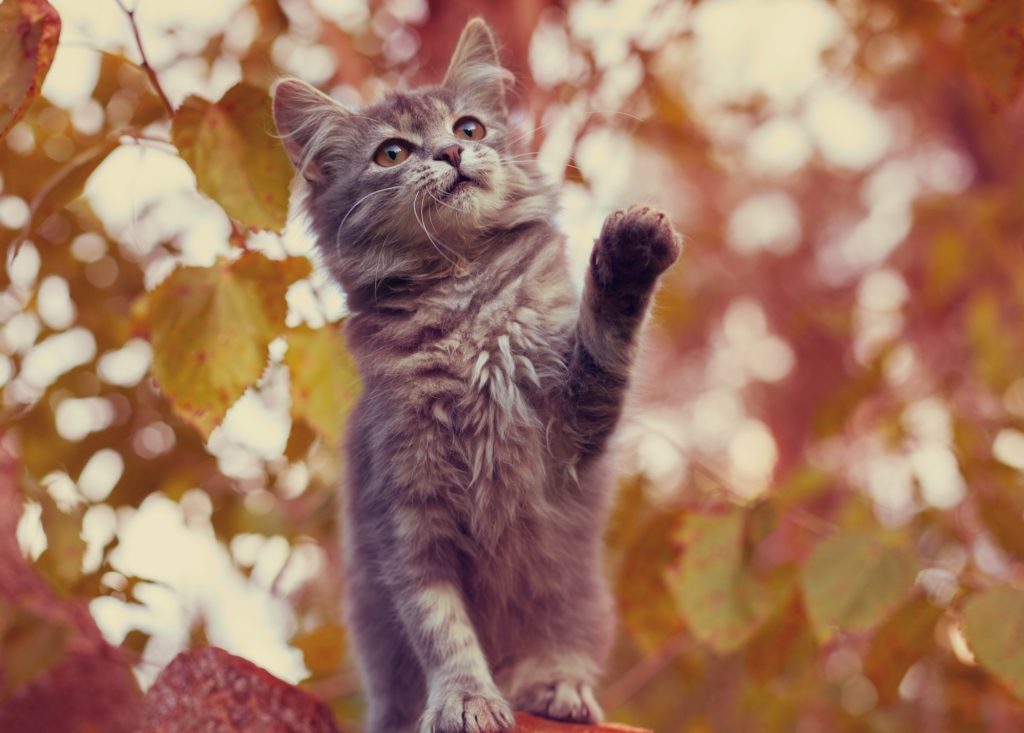
How to resolve kitten attacking older cat – 9 top tips
Cats are naturally solitary animals and so the introduction of a new boisterous, younger member can present its challenges. If the kitten is showing aggression towards the older cat the following tips may help:
1. Keeping the kitten separate from the older cat
Keeping the kitten confined to another room initially will allow the kitten to get used to the older cat slowly but surely. Introduce them to each other whilst you are present. Monitor their behavior and intervene if any aggression occurs. This will give them time to get used to each other.
2. Spend time playing with the kitten
Kittens have a great deal of energy. Ensure enough time is spent playing with the new kitten. We have a great article ’18 games to play with your cat’ which will provide plenty of ideas to entertain the playful tot. Play give cats so much more than simply burning energy. Playtime will keep cats healthy and ensure their bones and muscles develop strong and healthy. Playing a game where both the kitten and older cat can play can be a great tool for helping them to get along and become friends. Play will also relieves stress, anxiety and behavioral problems.
3. Ensure the older cat is still having your love and attention
It is important the older cat is reassured that he/she is the dominant cat in the household. Give them plenty of attention. They may not want to play as much but time on your lap, helping them with their grooming is still quality time. Check out two articles which look in detail at older cats and their needs:
16 Top tips to ensure the senior years are comfortable for your old cat
Best toys for an older / senior cat
4. Separate resources
It is important that cats do not have to fight for resources. This means separate water bowls, food bowls, litter trays, scratching posts, napping areas and a bed. It may well be that they become closer over time and indeed enjoy sharing some resources. After all what better way to have a nap than a friend to snuggle up to? But ensure that there is a choice for them and let them decide what they are willing to share.
5. Routine
Cats thrive on routine. Creating a daily routine will help the young kitten to learn the times for play, food and so forth. Check out our article ‘Do cats like routine’ for some ideas.
6. Spay/neuter kittens
Before the kitten turns one it is best to get them spayed / neutered. This will most certainly help with any aggression or conflict in the household.
7. Pheromones and calming aids
Pheromone products may help to ease any aggression and can help to calm your kitten. Pheromones are chemicals that the body releases when a cat is happy or sad to communicate with other cats and the outside world. Some diffusers contain calming and friendly pheromones. This diffuser made by Feliway is called ‘Feliway Multicat’ and sends calming pheromones to encourage cats to get along better. It is simply plugged into your home where the cats spend most of their time to release the spray.
8. Treats
By introducing some behavior modifications methods, this may ensure both cats associate their experience together as a positive experience. Treats are a great way to do this. Cats love treats and are usually very keen to receive these tasty delights. Ensure that they do not make more than 10% of your cats daily calorie requirements.
9. Get another kitten
An elderly cat may simply never be the perfect play mate for a young energetic kitten. Another kitten would have the same energy levels. They would entertain each other and let the older cat have the peace and tranquility it needs. Cats who are paired together when young are much likely to get along and live in harmony. Of course, simply having another kitten may not be possible. It is always best to consider current ages and condition of existing cats and other pets before introducing another pet into the family.
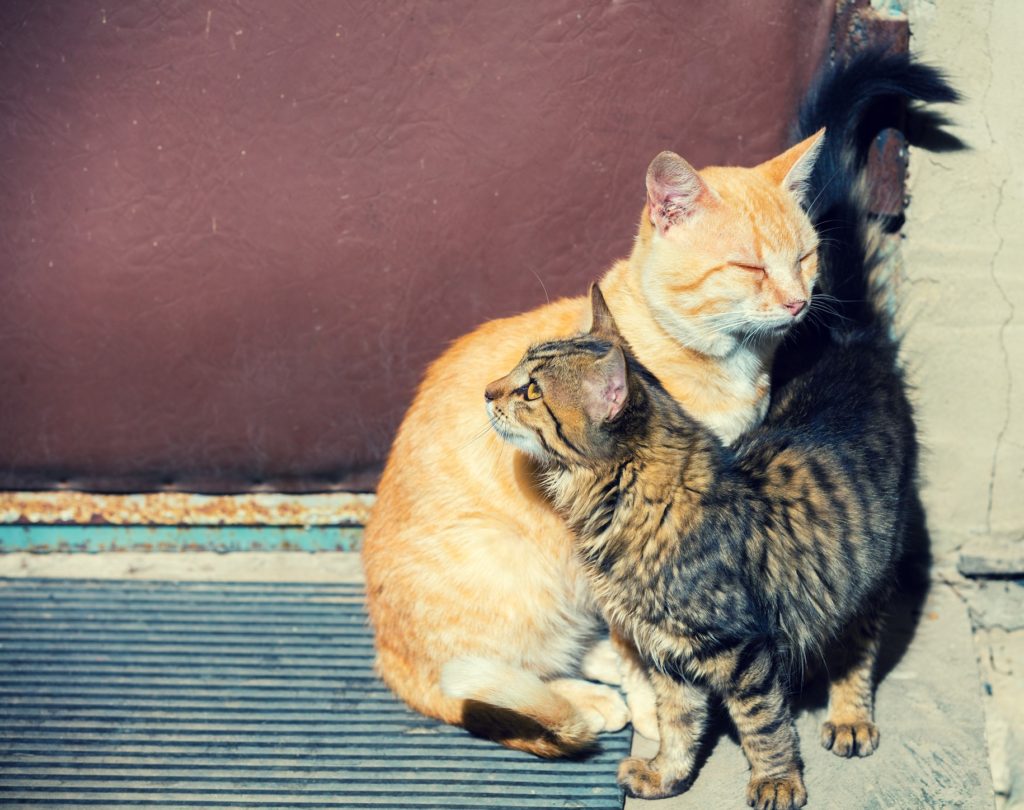
It is important not to let any conflict and aggression to fester or become worse. Try various option to resolve the issue. Seek professional help if you are unable to resolve the problems yourself. Always check with a veterinary if you need further advice or if aggression comes on suddenly.
______________________________________________________________________________________________________________________________________
Other articles you may find of interest:
Can cats share a food bowl? Can cats share a water bowl?
How often should I give my cat treats?
Can a mother and daughter cat live together?
How much time should I spend with my cat? Why do cats need attention?
